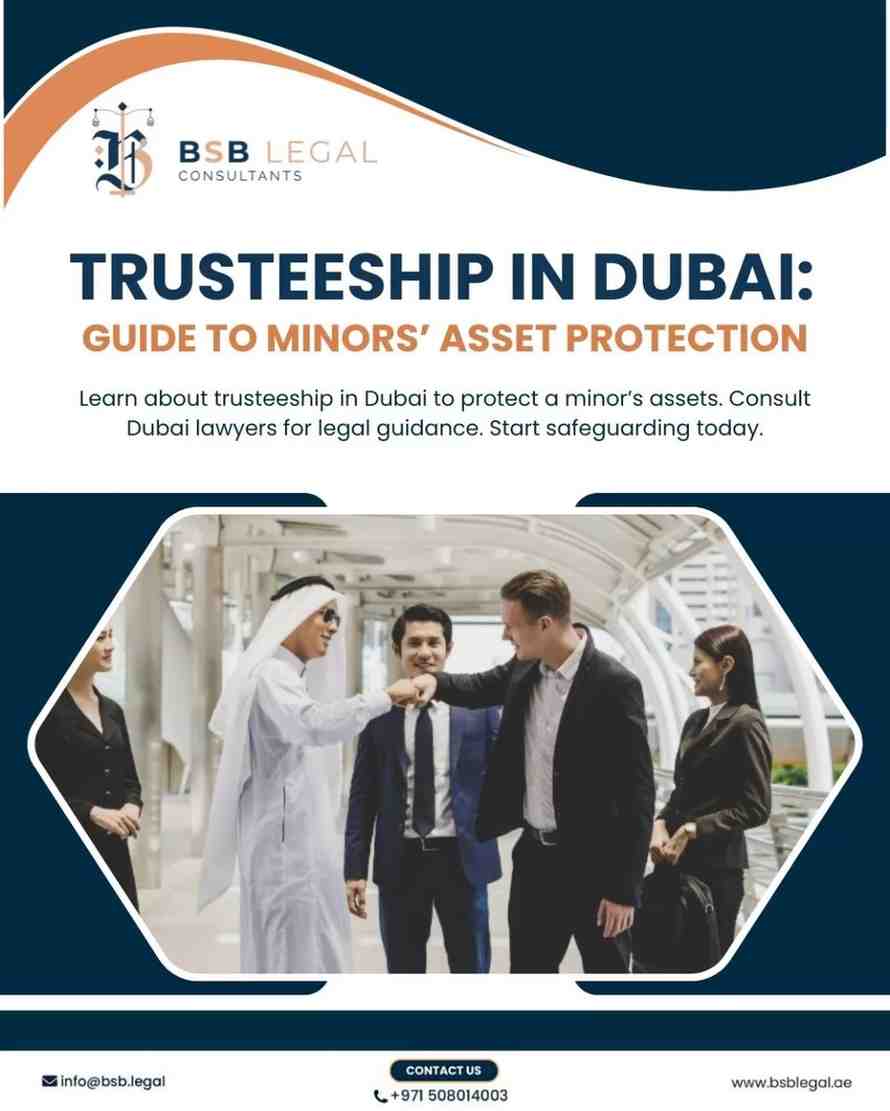


Learn about trusteeship in Dubai to protect a minor’s assets. Consult Dubai lawyers for legal guidance. Start safeguarding today.
When it comes to safeguarding a minor’s assets, trusteeship in Dubai is a key legal concept that ensures a child’s property is managed and protected until they reach adulthood. This role carries significant responsibility. If you’re a parent, guardian, or someone appointed as a trustee, understanding the ins and outs of trusteeship in Dubai can be beneficial for protecting a child’s financial future.
Trusteeship is a legal arrangement where the appointed trustee manages a minor’s property and assets. In Dubai, the father typically chooses the trustee, or in his absence, the court makes the appointment. The trustee takes on the responsibility to manage, protect, and invest the minor’s assets wisely, ensuring the property remains secure and potentially grows until the child reaches adulthood.
The father typically has the right to appoint a trustee for his minor children under the framework of trusteeship in Dubai. The court confirms the appointment to ensure the chosen trustee is suitable. If the father fails to appoint a trustee or selects someone the court finds unfit, the court steps in and appoints a trustee. Notably, the trustee must be just, competent, honest, and capable of managing the role’s responsibilities.
Specific individuals are disqualified from serving as a trustee, including anyone who:
These restrictions help ensure that only trustworthy individuals—those fully capable of acting in the minor’s best interests—take on this significant responsibility.
A trustee’s duties are comprehensive and are closely monitored by the court to protect the minor’s assets. Some of the key responsibilities include:
The trustee manages the minor’s property with the same care they apply to their own. Making sure the assets stay protected and are wisely invested whenever possible.
The trustee cannot make major decisions, such as selling or leasing the minor’s property, without the court’s permission. This includes actions like borrowing funds, accepting donations, or entering into any significant contracts on behalf of the minor.
The trustee must regularly report to the court on the status of the minor’s assets, including any transactions or decisions made.
The trustee’s authority is not unlimited. For instance, the trustee cannot:
In situations with multiple trustees, they must act jointly unless otherwise specified by the will or court. If disagreements arise among trustees, the matter is referred to the court for resolution.
Trusteeship ends under several circumstances, including:
Upon termination, the trustee must hand over all assets and related documentation to the appropriate parties, typically under court supervision. If the trustee and the minor sign any release or agreement within one year of the minor reaching adulthood, it holds no legal validity unless the court approves it. This safeguard ensures the minor’s rights remain protected.
For anyone involved in trusteeship, understanding these duties and limitations is essential. For further guidance on understanding trusteeship in Dubai or if you find yourself needing to appoint a trustee, it’s wise to consult with experienced Dubai lawyers or reputable law firms in Dubai. They can provide the necessary legal advice.
